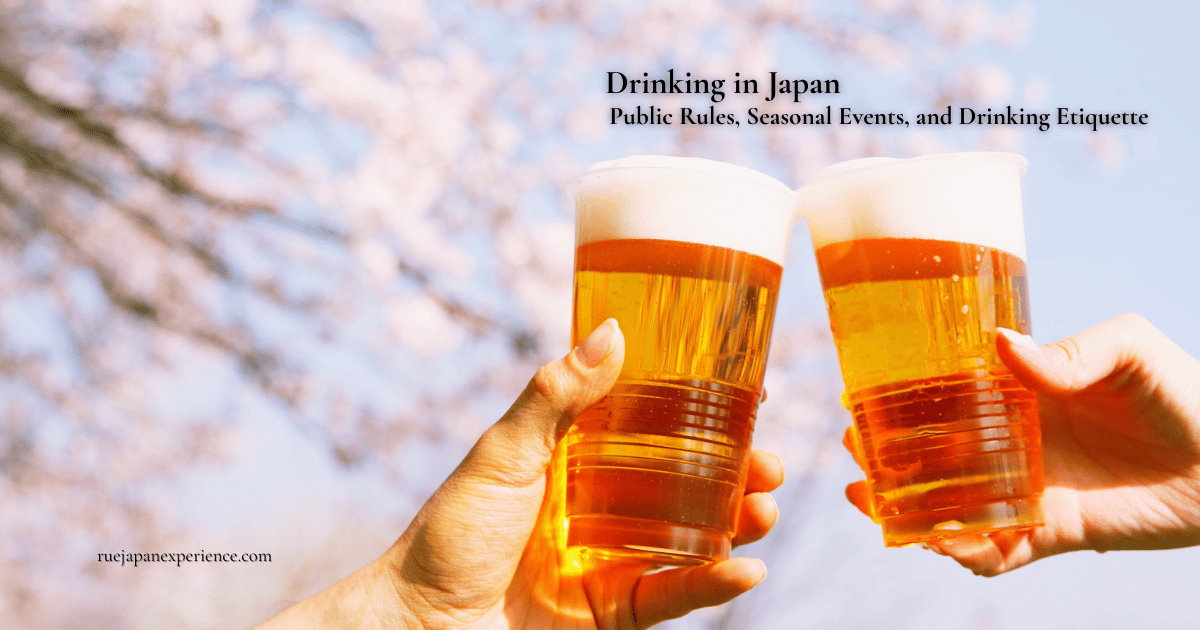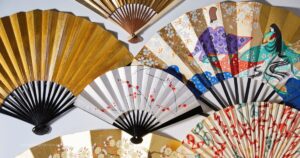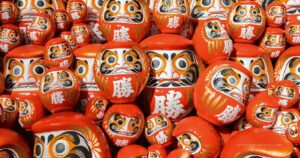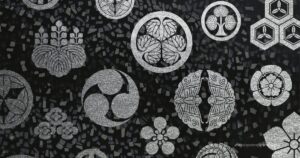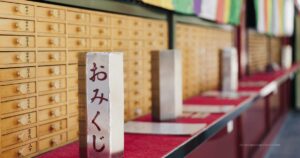Visiting Japan and curious about how alcohol is enjoyed here?
From sipping sake under cherry blossoms to browsing convenience store shelves lined with beer cans, Japan’s drinking culture is both unique and deeply tied to tradition.
But before you raise your glass, it’s important to understand the local laws, customs, and manners to ensure a respectful and enjoyable experience.
Legal Drinking Age in Japan
In Japan, the legal drinking age is 20 years old. This rule remains in place even after the age of adulthood was lowered to 18 in 2022.
・You must be 20 or older to buy or consume alcohol in Japan
・Selling alcohol to or encouraging those under 20 to drink is illegal
・ID checks are common when purchasing alcohol at convenience stores or restaurants
・Bring a passport or residence card as proof of age
Drinking underage is taken seriously in Japan, so always carry identification to avoid trouble.
Where to Buy Alcohol
Alcohol is widely available in Japan, from casual drinks to high-end spirits.
・Convenience stores and supermarkets sell beer, chu-hi, sake, and more
・Restaurants, izakayas, and bars offer a variety of alcoholic beverages
・Some vending machines sell alcohol but require age verification
Whether you’re on the go or dining out, you can easily find alcoholic drinks—but always purchase responsibly.
Public Drinking in Japan and Why It’s Changing
At first glance, Japan may seem unusually relaxed when it comes to public drinking. In many countries, drinking alcohol in public is illegal. But in Japan, it is generally allowed.
This freedom may give visitors the impression that anything goes. But Japan’s attitude toward alcohol is based on long-standing cultural traditions, not a lack of rules.
Historically, outdoor drinking has been part of community life. In the Nara and Heian periods, people drank sake during special ceremonies and poetry gatherings. By the Edo period, it became common for everyday people to enjoy alcohol in public, especially during festivals and seasonal events.
Events like hanami (cherry blossom viewing) and matsuri (traditional festivals) often include drinking as part of the celebration.
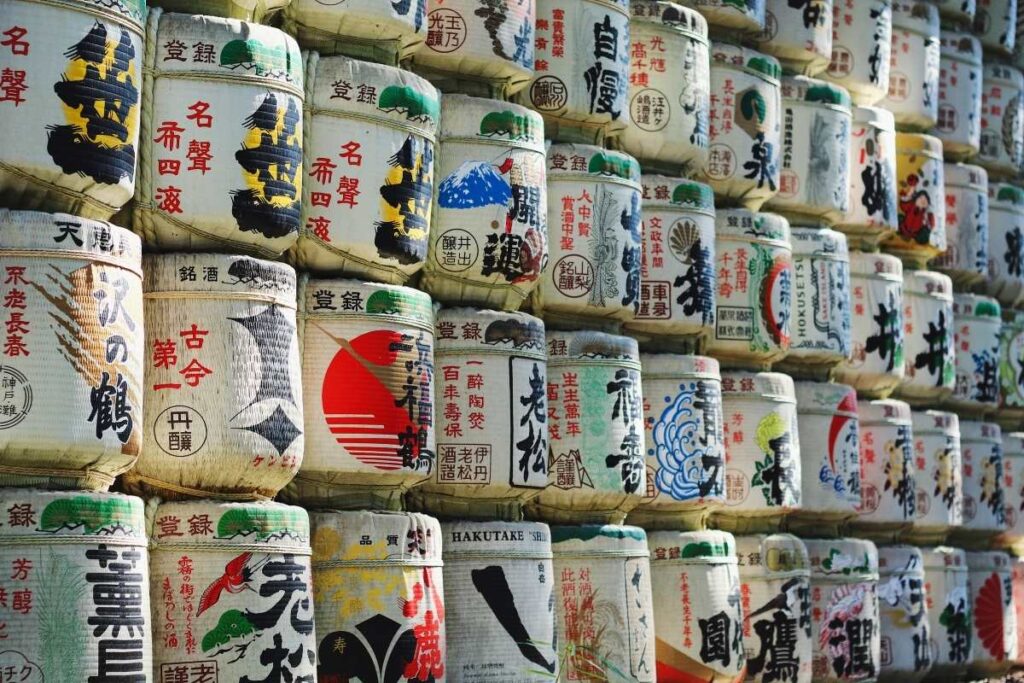
Alcohol also plays an important role in Shinto rituals, where it is offered to the gods and shared within the community.
This history explains why public drinking has been tolerated in Japan. But that doesn’t mean it’s a free-for-all. In Japan, how you drink is more important than where you drink.
There is a strong social rule: don’t disturb others. As long as people are respectful and don’t make a scene, drinking in public is often tolerated.
However, in recent years, things have started to change. In busy areas like Shibuya in Tokyo, large crowds and alcohol have caused problems—especially during Halloween and New Year celebrations.
There have been issues with litter, noise, and dangerous behavior. Some tourists also misunderstand Japan’s drinking culture. They assume that public drinking is always welcome, and they don’t follow the local manners.
To address this, Shibuya introduced new rules. Since 2019, public drinking has been banned in the area during certain events. And starting in October 2024, drinking in public around Shibuya Station will be banned every night from 6:00 PM to 5:00 AM.
Other districts, like Shinjuku, are considering similar rules.
These new regulations are not about banning alcohol itself. They are meant to protect public order and create a safe space for everyone.
So, can you still drink in public in Japan? In many places—yes. But you must be careful and respectful.
・Look for signs that say drinking is not allowed
・Keep your voice low
・Never leave trash behind
・Avoid drinking if people around you seem uncomfortable
When in doubt, watch what locals are doing. In Japan, drinking is part of the culture—but so is being considerate.
Understanding Japan’s “Alcohol-Friendly” Image
Japan is often viewed as an alcohol-friendly country, especially by visitors from abroad. Some international researchers have even called Japan “one of the most permissive countries in the world when it comes to alcohol,” citing the freedom to drink in public and the widespread social acceptance of alcohol.
Because of this, some tourists arrive with the impression that alcohol can be enjoyed anytime, anywhere in Japan. However, this image does not reflect the full reality.
TV shows, YouTube videos, or social media may highlight the most extreme or entertaining aspects of Japanese drinking culture, but they don’t represent the behavior of most people in daily life. If you’re visiting Japan, it’s important to enjoy alcohol within the boundaries of courtesy, moderation, and local expectations.
Drinking and Driving Is Strictly Prohibited
Japan has a zero-tolerance policy on drinking and driving.
・Driving after consuming any alcohol is illegal, including for cars, motorcycles, and bicycles
・Penalties can apply to the driver, passengers, and even those who provided the alcohol
・Police checkpoints are frequent, and the consequences are severe
Never risk driving after drinking—not even a little. Use public transportation, taxis, or walk.
Drinking and Seasonal Festivals in Japan
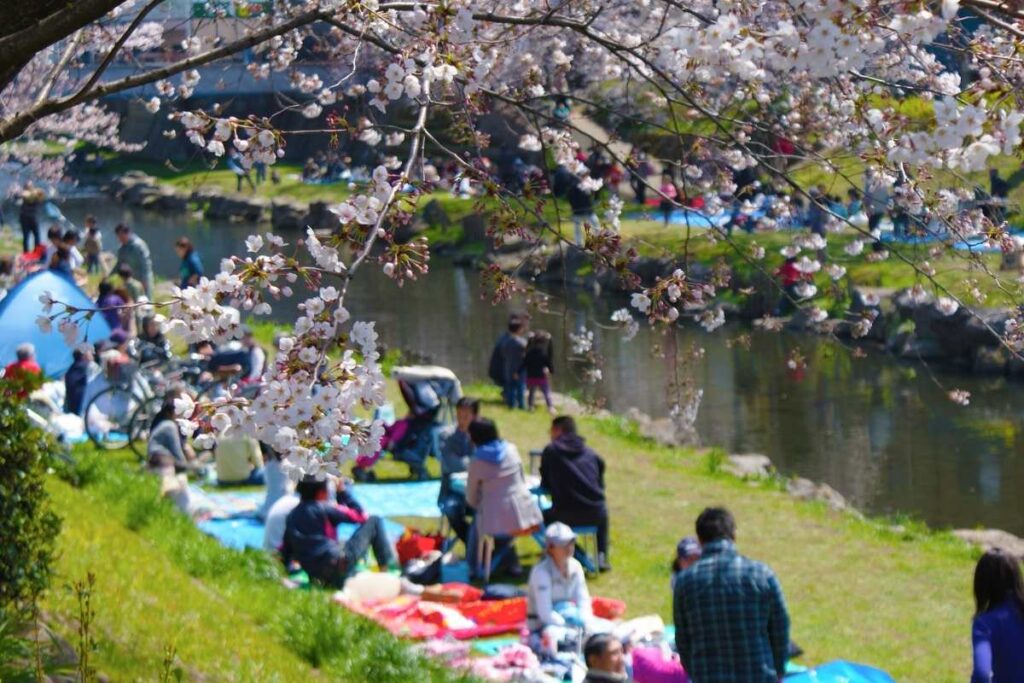
Drinking is often part of seasonal events in Japan, but it’s meant to enhance—not dominate—the celebration. Respectful and moderate drinking is expected.
Below are some of the most common seasonal occasions where alcohol is enjoyed:
・Hanami (Cherry Blossom Viewing) – In spring, people gather under sakura trees to share food and drinks while admiring the fleeting beauty of the blossoms. It’s a time for relaxing and socializing, with alcohol as part of the setting.
・Matsuri (Traditional Festivals) – At summer and autumn festivals, drinks like beer, shochu, or highballs are often sold at food stalls. These celebrations may also have deeper cultural meaning, especially those held at shrines.
・Fireworks Festivals – On warm summer evenings, fireworks shows attract large crowds. People enjoy light meals and cold drinks while watching the sky light up—but as always, polite behavior is expected.
・Autumn Harvest and Winter Celebrations – Seasonal changes bring people together to enjoy local specialties and drinks. End-of-year parties and New Year’s gatherings often include alcohol as part of the social bonding.
In recent years, events focused on alcohol itself—like craft beer festivals and sake tasting events—have become more common across Japan. These gatherings are a great chance to experience local drinks.
No matter the occasion, it’s important to drink responsibly and respect the event and people around you.
Are Alcoholic Drinks Vegan-Friendly?
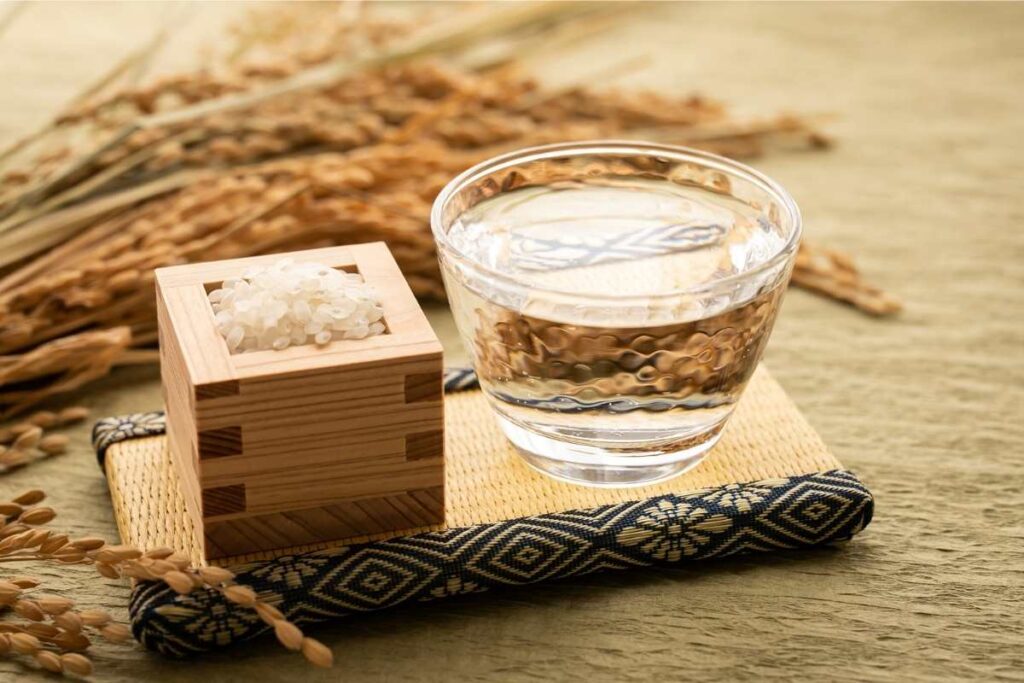
Some alcoholic drinks, particularly sake and wine, may use animal-derived ingredients in the filtering process.
・Clarifying agents such as gelatin, egg whites, or fish bladders are sometimes used
・These are not usually listed on labels, making it hard to identify vegan options
・Well-known vegan-certified sake brands include Dassai, Nanbu Bijin, and Akashi-Tai
・Vegan-friendly sake uses natural sedimentation or plant-based alternatives
If you’re unsure, it’s a good idea to ask the staff at the store or restaurant—though not everyone may know, they can often help you find more information.
Exploring Japan Through Local Alcohol Experiencesなんか全体的にぴんとこない
If you’re interested in learning more about Japanese alcohol culture, there are several places across Japan where you can enjoy tastings, tours, and historic brewery settings. Each location offers a different experience—from walk-in sake sampling to reservation-only whisky tours.
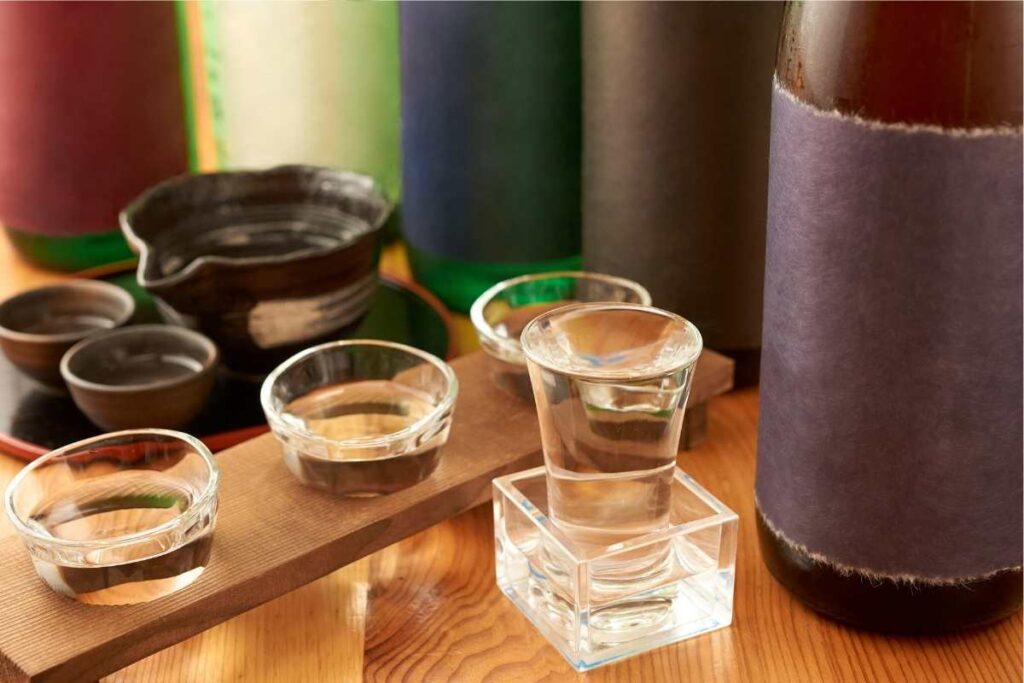
・Fushimi (Kyoto)
Fushimi is one of Kyoto’s most famous sake districts. The area is home to many breweries, some of which offer free tastings and do not require reservations.
You can enjoy sake from different producers as you walk through charming, historic streets. It’s a great destination for those who want a casual and cultural tasting experience in a compact area.
If you’re planning a visit to the Fushimi sake district, you might also want to explore Fushimi Inari Shrine, located in the same Kyoto ward.
It’s one of Japan’s most popular tourist destinations, famous for its thousands of red torii gates.
・Nada (Hyogo)
Located near Kobe, the Nada district is Japan’s largest sake-producing area.
For example, the Kikumasamune Sake Museum showcases historical brewing tools and offers both free and paid tastings.
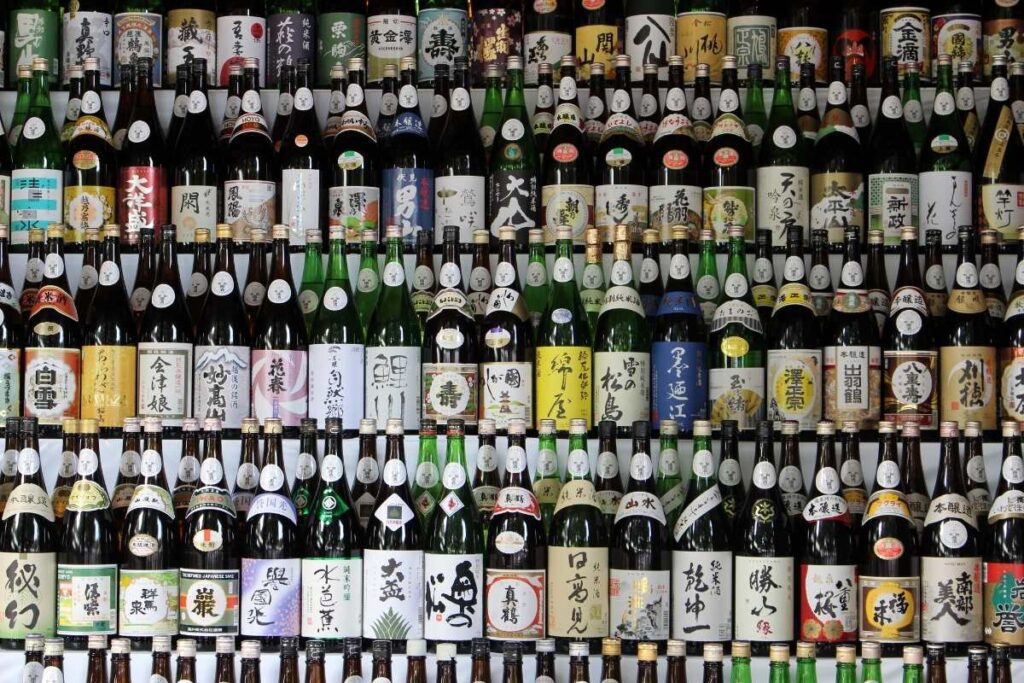
・Yamanashi Prefecture (Katsunuma area)
Yamanashi is the birthplace of Japanese wine.
The Katsunuma region hosts many wineries, and you can enjoy vineyard tours, wine tastings, and even local food pairings.
Some tours are available without a reservation, but many wineries now require online booking, especially on weekends or during the harvest season.
・Suntory Yamazaki Distillery (Osaka)
This is Japan’s first and most famous whisky distillery. The guided “whisky-making tour” covers every step of the process—mashing, fermenting, distilling, and aging—and includes tastings of the rare “Yamazaki” line and distillery-only editions.
All visits, including access to the tasting lounge or shop, require advance reservations and photo ID for age verification.
Tours are often fully booked weeks in advance, so it’s best to plan early.
Please note that some facilities charge entry or tasting fees, and reservation policies vary by location.
Always check the official website before you go.
Final Tips for Enjoying Alcohol in Japan
・Only drink if you are 20 years old or older
・Avoid drinking in areas where it is prohibited
・Don’t leave litter or cause a disturbance in public places
・Never drink and drive—Japan is strict on all forms of drinking and operating vehicles
・Be mindful during seasonal events—alcohol is part of the culture, not the main event
・When unsure, follow the locals’ lead and stay respectful
Want to understand more about Japan’s public behavior rules?
👉 Read our guide to Smoking in Japan
